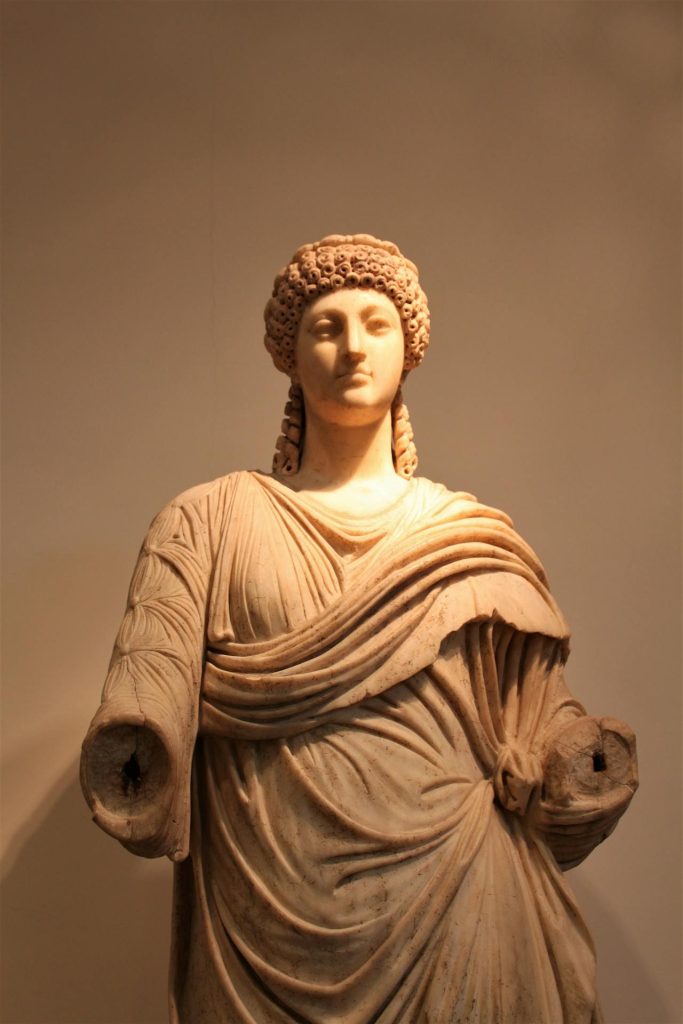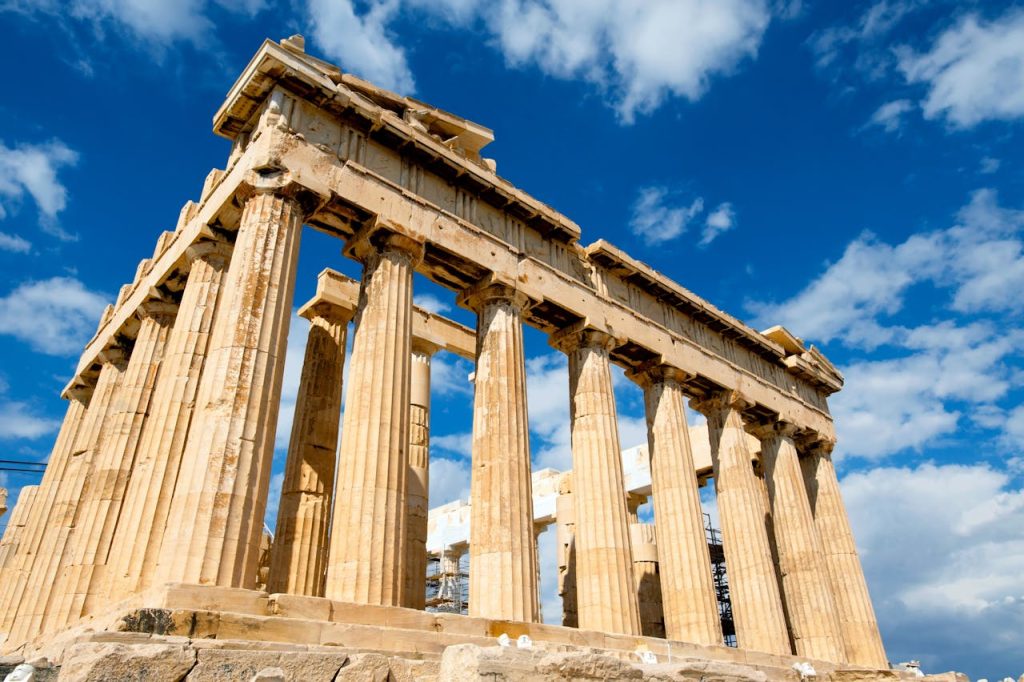Your basket is currently empty!
Demeter
The Goddess of Agriculture and the Cycle of Life
Demeter, the revered Olympian goddess of agriculture, fertility, and the harvest, was one of the twelve Olympian deities born to the Titans Cronus and Rhea. As the provider of bountiful crops and the sustainer of humanity, Demeter’s role was vital in ancient Greek life. She embodied the nurturing force of nature, ensuring that the earth remained fertile and life could thrive.
Demeter’s story is inseparable from her deep bond with her daughter, Persephone. This relationship forms the heart of one of Greek mythology’s most poignant tales. Persephone, radiant and full of life, caught the attention of Hades, the god of the underworld. Without Demeter’s knowledge or consent, Hades abducted Persephone while she gathered flowers in a meadow, spiriting her away to his shadowy realm.

Distraught and inconsolable, Demeter roamed the earth in search of her daughter, neglecting her divine duties. Without her care, crops withered, and famine spread, threatening humanity’s survival. Her sorrow moved Zeus to intervene, and he brokered a deal to return Persephone. However, because Persephone had eaten pomegranate seeds in the underworld, she was bound to spend part of the year with Hades and the rest with her mother.
This cyclical reunion symbolizes the changing seasons: Persephone’s time in the underworld brings winter’s barrenness, while her return heralds spring’s renewal. Demeter’s grief and joy echo humanity’s connection to the rhythms of nature, making her myth a timeless reminder of life’s cycles and the enduring power of maternal love.

Leave a Reply